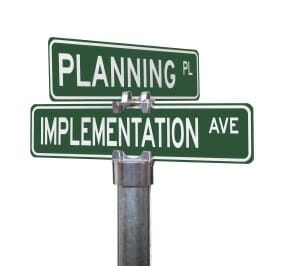 It doesn’t take a major weather event or a terrorist attack to prove the good sense of being prepared. But what does it take to activate and cultivate the way of thinking that puts you in a good place, prepared for anything?
It doesn’t take a major weather event or a terrorist attack to prove the good sense of being prepared. But what does it take to activate and cultivate the way of thinking that puts you in a good place, prepared for anything?
Many of the readers who frequent my posts know something of my background, but many do not realize that for the last seven years, my corporate position has been as an executive of a firm dedicated to risk management for companies operating in war-torn countries and dangerous areas of the world. My background and job, as well as my military and law enforcement connections and contacts, my team of consultants, and my track record have left me in a unique position to evaluate risk in many different scenarios. My passion however, is the psychology of the process: how thoughts provoke action, how those actions provoke other thoughts and actions, and the tendency for repeat actions to be taken based on the historicity of a specific situation. Furthermore, the psychology of the preparation from a passive perspective as opposed to the psychology of the action from an active perspective fascinates me.
This isn’t a white paper on the psychology of preparedness, but it is certainly a primer on the ideas that grease the gears of such a concept. Without the underlying thought process, it is difficult to properly undertake a preparation protocol. But what is it that makes up the psychology of being prepared?
In the first article we talked about risks facing the citizens of the U.S., but the risks listed certainly provide a basis upon which a citizen of another country could build a substantial idea of the risks that face them as well. Risk is an important part to the psychology of preparedness.
When attempting to prepare for the most comprehensive plan, the psychology of being prepared is about being open minded and understanding risk. Knowing what situational awareness is and how to use it to assess changing risks is also important as you implement an action plan based on the thoughts (psychology) of the situation.
The basis for the psychology of preparedness also includes knowing where you stand in addition to which risks you face.
Having a good set of resources, an open mind, defined risks, and (most importantly) defined reactions to those risks will be the key to formulating a fully responsible and usable preparedness platform.
People need to understand that they are not alone. You aren’t the only one reading this article, even if no one has commented on the subject. When you can finally rationalize that you have these feelings of fear or uncertainty, you can begin to best use the psychology of preparedness that is forming in your mind. We are inundated as a nation with bad news daily, and it can be debilitating when it is taken too seriously or not seriously enough. You must look for the middle ground and seek out the truth of the matter as it relates to you. Tensions along the Gaza strip may not directly affect you, but a military conflict directly with Iran may. You must understand what the potential parameters of a given situation are so you can know how best to prepare.
You must also know yourself and your core beliefs, and don’t be afraid to write them down to evaluate them in the planning process. These fundamental values can offer a great insight into the process of deciding what happens next, which eventually leads to action or inaction.
How can you control yourself in stressful situations? What will you need to be comfortable, happy, and strong for yourself and others? Which items provide a valuable service for you that you may be unable to find or access during a bad situation? What foods will provide comfort and sustenance in a time of need? What will you need to be completely efficient and effective if placed into a more primitive or less technological situation?
Who can you call upon for help? What will you need to ensure they are comfortable and safe? What are you willing to do to protect yourself, your family, and the resources you have prepared and stored?
Knowing your limitations and having specific goals and parameters will serve you well when you must rely on muscle memory and habitual repetition to survive. Knowing what you will and won’t do and what you can and can’t do will allow you to build an ideal preparedness model.
Do You Have the Basics Met?
Make sure that at all times you understand how you will provide for your family during ANY time of stress, whether it is a localized event (like an extended sickness or job loss) or whether it is a macro event (like an invasion by a foreign power or an EMP attack). Only you know which risks you face in reality; only you can determine to what level it is prudent to prepare. In the event of an EMP, you will still be able to cook food on a BBQ and drink water from a water filter, regardless of if you can watch TV to determine the state of the Union. Prepare by knowing your risks and addressing your own personal concerns about them because preparation is intensely personal. I don’t expect many of the readers reading this to have the same gear or resources I have in place in case of a major event, because my available gear, thought process, fears, location, and risks are different than any of the readers.
Do you have food, water, and shelter? What about fuel for cooking and sanitation products/resources? Do you have the capability to think clearly and enact your plan and checklists? How about family support and good communication? Can you protect yourself from imminent threats?
The above variables are constant and should never be overlooked.
When you are looking for the catalysts of preparation, you need not look further than the risks you face, your core beliefs, your view of your risk exposure, and the basic unchanging variables. A combination of these items will serve you well in planning for anything. The only thing you will then have to implement in a prolonged or changing scenario is active situational awareness, which will help you to modify your actions and reactions to best suit your needs.
Thought-provoking information can either enable you or disable you: the psychology of preparedness is about being enabled now and in the future.
©2012 Off the Grid News
 Off The Grid News Better Ideas For Off The Grid Living
Off The Grid News Better Ideas For Off The Grid Living



